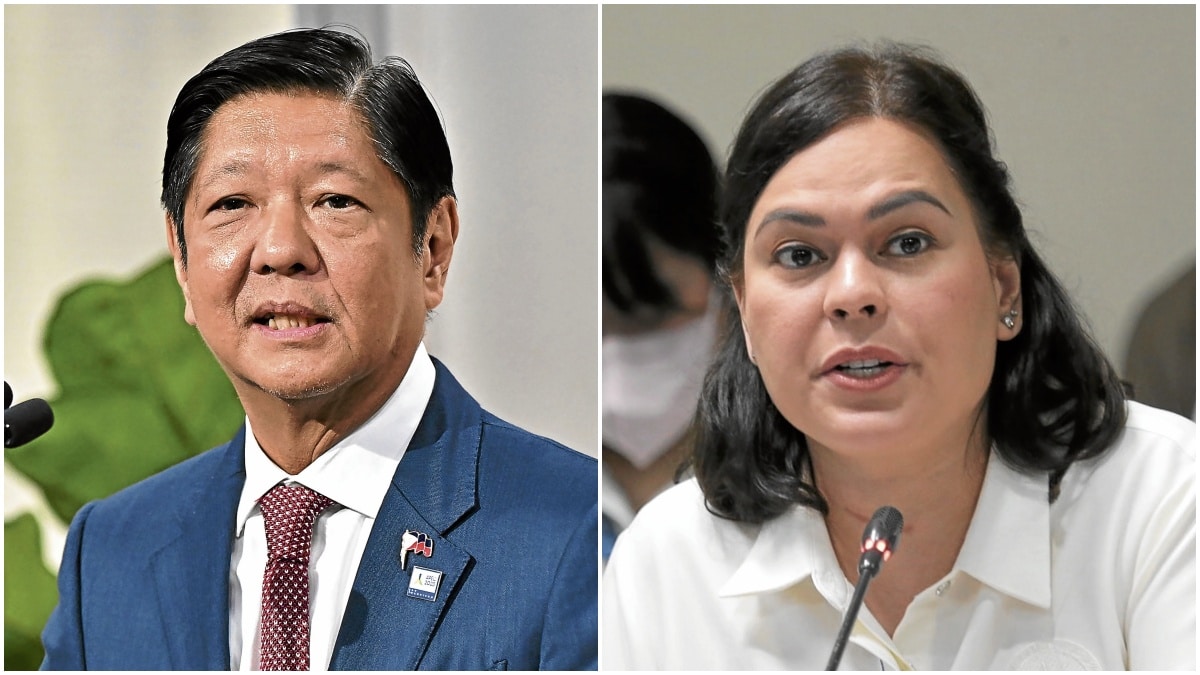
President Ferdinand Marcos Jr. and Vice President Sara Duterte. –INQUIRER.net file photos
MANILA, Philippines — A prolonged and “fierce” Marcos-Duterte feud could pose fiscal and economic risks for the Philippines, Fitch Ratings said, while still highlighting that growth is so far staying “solid” despite experiencing a slowdown.
“Domestic political conflicts, which have escalated ahead of the May 2025 midterm elections, could, if sustained, weigh on macroeconomic and fiscal performance, in our view,” the credit rating agency said in a report.
What was once known as the “UniTeam” alliance broke up after Vice President Sara Duterte had verbally attacked President Marcos following congressional scrutiny on the use of confidential funds by the Office of the Vice President. Allies of the administration have control of the House of Representatives.
READ: Duterte: I’ll throw Marcos Sr.’s body into West PH Sea if attacks continue
The feud further escalated after Duterte told a press conference that she had asked someone to kill the President, the first lady and the Speaker if she dies. That outburst had been cited in an impeachment complaint filed by progressive political groups against the Vice President.
For now, the economic team said they remain “undeterred” by political noise, adding that the work to bag an “A” credit rating for the government continues and that investors would rather focus on reforms.
Fitch said it continued to expect government debt, as a share of the economy, to decline from 2025 “on strong growth and narrowing fiscal deficits.” This, in turn, may boost the country’s chances at increasing its creditworthiness.
The debt watcher said that while its forecasts were wider than targeted in the government’s fiscal program, they still represented an improvement from the deficit-to-gross domestic product (GDP) ratio of 6.2 in 2023 and a peak of 8.6 percent in 2021.
READ: Bongbong Marcos to Sara Duterte: Point of no return? Never say never
“Our narrower general government deficit forecast of 4.4 percent of GDP for 2024 reflects social security and local government surpluses,” Fitch said.
Meanwhile, Fitch said that although real GDP growth has slowed since the postpandemic rebound in activity, the economy is expected to expand by 5.7 percent in 2024, albeit below the 6-to-6.5-percent target of the government.
“We expect growth to pick up to 6.2 percent by 2026, on monetary easing, infrastructure spending and reforms to foster trade and investment,” it added.

